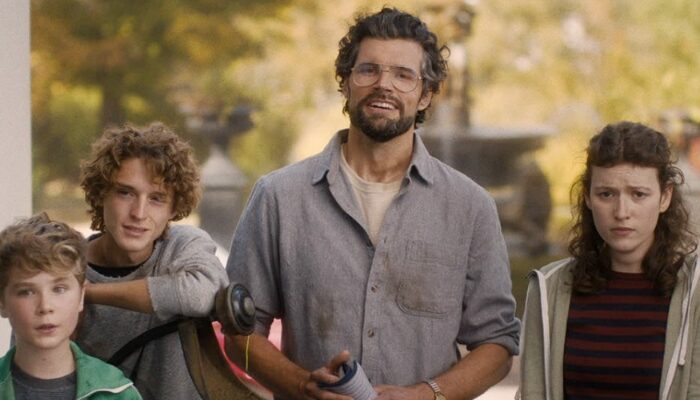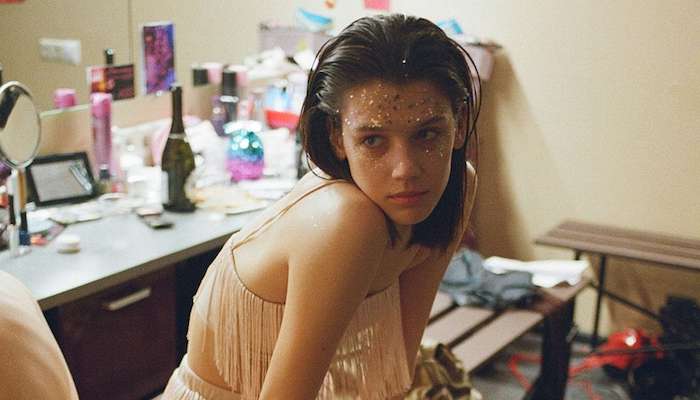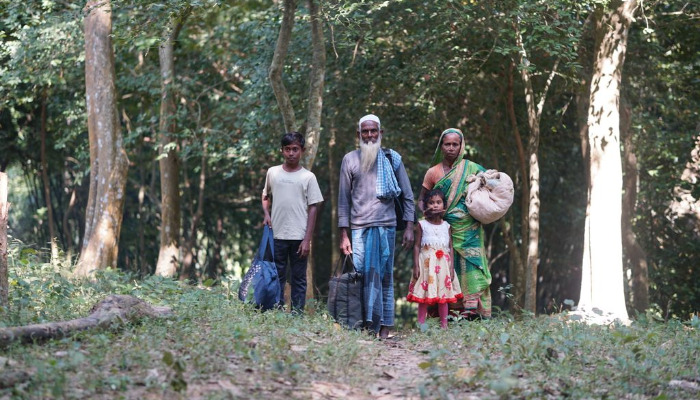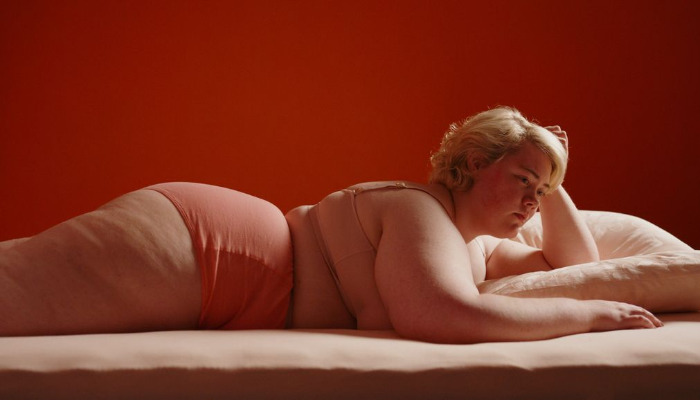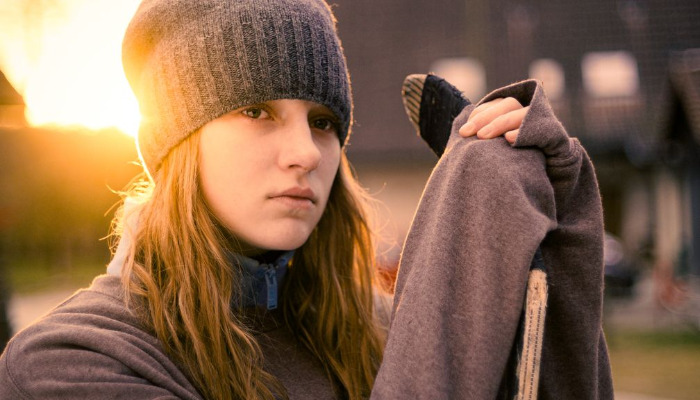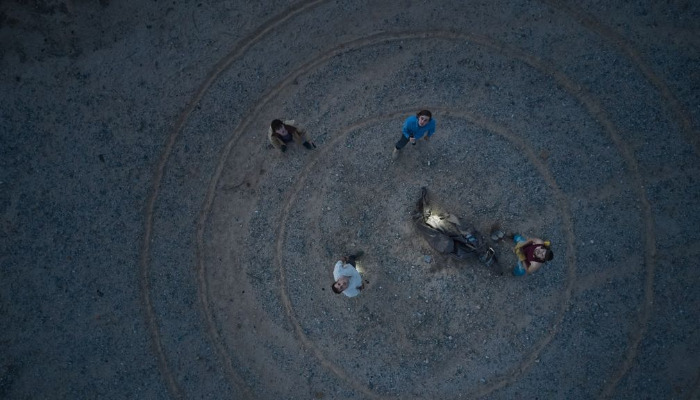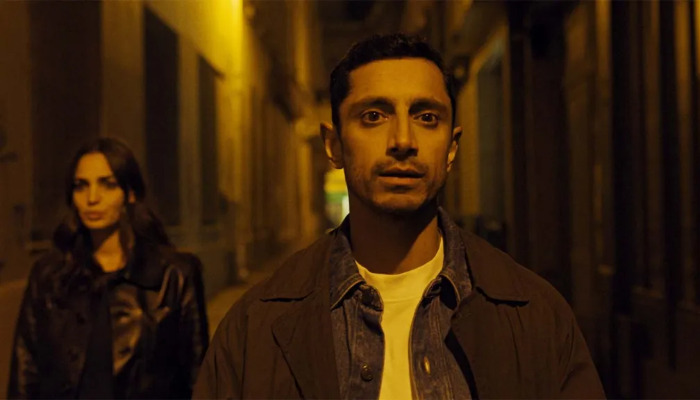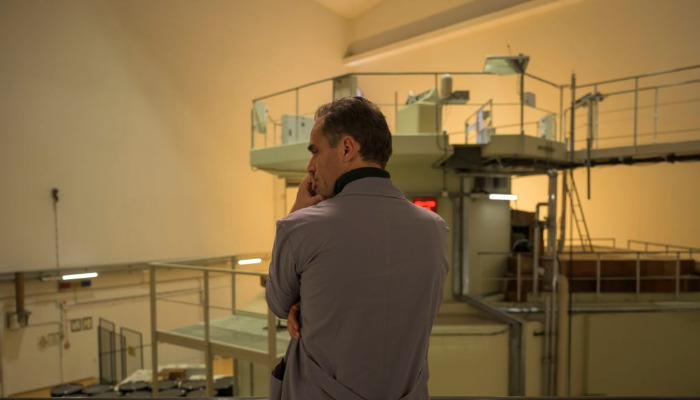Film Review: GERDA: Relentless Russian Realism With Flourishes of Fantasy [Locarno 2021]
Gerda Review
Gerda (2021) Film Review from the 74th Annual Locarno Film Festival, a movie written and directed by Natalya Kudryashova, starring Anastasiya Krasovaskaya, Yuriy Borisov, Yulia Marchenko, and Darius Gumauskas.
Selflessness is an admirable trait, but not at the expense of one’s own sanity. Unfortunately, not everyone has the luxury to put themselves first, even for a single moment of peace, and they find themselves trapped in the entanglement of others’ lives just to maintain structure within their own. Natalya Kudryashova’s Gerda is about such stresses that inadvertently lead you to become society’s saving grace, and how damaging it can be to ever move on.
In a small Russian town, Lera (Anastasiya Krasovskaya) struggles to maintain a happy life. Her estranged father (Darius Gumauskas) is an abusive alcoholic, and Lera’s mother (Yulija Marchenko) relies on her for care due to her partially debilitating mental health – not to mention protection from her father’s harassment, as well. Meanwhile Lera is swamped with university work as she strives for a sociology degree, which involves numerous trips around town to talk with neighbors who run the gamut from serial hoarders to alcoholics themselves to just plain rude folk, all to “steer them in the right direction” when conducting cultural surveys. To earn some semblance of a living she works late nights at a local strip club, under the titular name “Gerda”, where the other women taunt her over a falsely perceived sense of promiscuity.
Lera’s only bits of solace are when she can be at home with her mom and enjoy a nice meal, or when she can hang out and take shrooms with her longtime friend and neighbor Oleg (Yuriy Borisov) – a gravedigger by trade and an artist by desire who’s helped her out of many a tight situation. Lera can otherwise only achieve a sense of calm within her dreams, wherein she taps into a fantastical – though still sorrowful – sense of tranquility, weightlessly trudging through the mossy underbrush of a mystical forest that would make Lars von Trier jealous.
In these brief dreamlike segments Kudryashova takes a stab at the fantastical to emphasize Lera’s dissociation as a coping strategy. However, that magical realist approach also serves to rationalize Lera’s role within her wider reality. At one point a customer in the strip club asks her about the name Gerda (after she lies and tells him that’s her real name, as a misdirection), and if her parents named her after “that story” – most likely referring to Hans Christen Andersen’s “The Snow Queen” and its young protagonist. Like the Gerda in the fairy tale Lera runs herself ragged in order to protect those who are in close proximity to her, from keeping her mother psychologically healthy and physiologically safe, to helping her fellow strippers not fall victim to sexual assault or drug overdose.
Also like in the fairy tale, those “Gerda” saves aren’t always grateful due to their blindness (in a metaphorical sense, that is, via ego and jealousy and mental illness … not by fragments of a cursed troll-mirror). Everyone in Lera’s life is indebted to her protection, whether or not they know it. She’s inherited the role of the town’s guardian angel – which makes sense, after all, since it was prophesized in a childhood photograph with celluloid defects that showed “wings” behind her (and as we all know: photographs only show the gospel truth). The tragedy of it is that being selfless isn’t by her own choosing – she was essentially forced into this role out of necessity and coincidence, and she knows that if she were to abdicate it everything would quickly fall apart.
All of these light allegories are well and good, but that’s the extent to which Kudryashova takes it. Lera must frequently think on her feet in order to save others or herself in a moment’s notice, and those scenes are aptly stressful, but the magical realist bits don’t do much to counteract that stress or even to simply balance out the narrative with a change in style. After a while it even becomes hard to invest in all the frank drama due to how unrelenting it is. I’m leery to write it all off as misery porn but it sure is tempting to do so, seeing how Kudryashova continuously hammers home the bleakness of Lera’s entire world with sparse thematic payoff.
And yet there’s a somber allure to Gerda that makes it hard to look away, and the cast and Kudryashova herself (despite her thematic limits) are full-on committed to it. It’s kitchen sink realism with a Russian bent, and that’s far from a worthless investment.
Rating: 6/10
Leave your thoughts on this Gerda review and the film below in the comments section. Readers seeking to support this type of content can visit our Patreon Page and become one of FilmBook’s patrons. Readers seeking more Fantasia International Film Festival news can visit our Locarno Film Festival Page, our Film Festival Page, and our Film Festival Facebook Page. Readers seeking more film reviews can visit our Movie Review Page, our Movie Review Twitter Page, and our Movie Review Facebook Page. Want up-to-the-minute notifications? FilmBook staff members publish articles by Email, Twitter, Facebook, Instagram, Tumblr, Pinterest, Reddit, and Flipboard.
Related Articles
FilmBook's Newsletter
Subscribe to FilmBook’s Daily Newsletter for the latest news!

